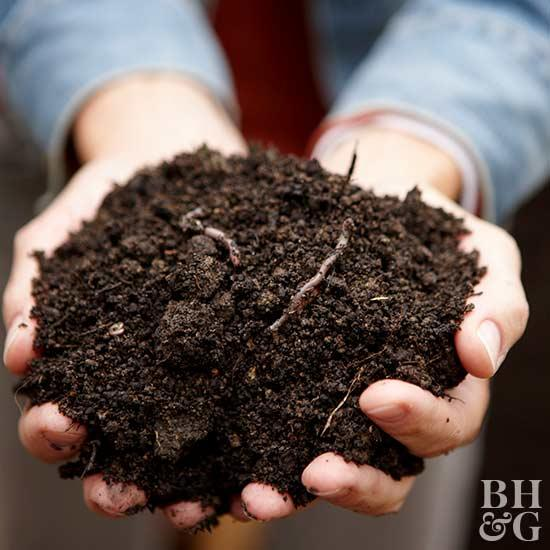#MyGarden - ep. 3: homemade compost!

Hello Steemians and EcoSteemers!
In today's post I want to talk about composting. Because the best way to start building a house is by laying the foundation, the best way to start cultivating is by the soil that will sustain the roots of our plants.
But then plants do not just need "earth" or "dirt"?
It dosen't seem to be that way. As I have come to discover, although plants are able to "produce their own food" through photosynthesis, needing only "CO2", water and sunlight, each plant needs certain nutrients depending on its characteristics, and of its state of development. And these nutrients must be present in the soil in which it is found.

One way of enriching this same soil with nutrients is through the addition of industrially produced fertilizers. But since the purpose of my business is to reconcile ecologically and economically sustainable practices, buying fertilizers is out of the question. And the solution "home made" turns out to be much more interesting and at zero cost.
What is composting?
Composting is the biological process of valorizing organic matter, whether urban, domestic, industrial, agricultural or forestry, and can be considered as a type of recycling of organic waste. It is a natural process in which micro-organisms, such as fungi and bacteria, are responsible for the degradation of organic matter, transforming it into humus, a material very rich in nutrients and fertile.
Put another way, composting is a method to recycle certain types of household waste (and not only), transforming it into rich and fertile material for the plants here at home.

How to make compost at home?

Composting can be done in its own containers, sold by specialized companies, in makeshift containers, in the open air in the garden, or even in pots where we will put the plants later.
Ingredients</3>In the compound, by layers, we can include:
Green waste from the home - the kitchen is the source of more material for composting because it is where most of the vegetable materials such as vegetables, fruits and their husks come from, coffee grounds, tea bags, egg shells.
Dried wastes like leaves from fallen trees in autumn also result in an excellent layer of brown waste that we can take advantage of at the time and bring home.
Some pieces of paper and cardboard are also acceptable, albeit in smaller quantity and avoiding those more colorful, to prevent chemicals from seeping into our soil.
To avoid:
Meat, fish, dairy products and fats, such as cheese, butter or sauces: they cause unpleasant odors and make the compound unfeasible.
Animal excrement may contain pathogenic microorganisms that survive the composting process.
Garden waste treated with pesticides, medicines, paints, batteries and other chemicals: composting temperatures do not eliminate toxic substances.
Sick or insect infested plants can pass the diseases onto the compound.
Coal ash and seed weeds due to the risk of unwanted crops.
Glass, metal and plastic: contaminate and make the compound unviable.
It is recommended that the material be stirred during the process, which will take about 6 months, so that it does not become too compact and allowing its oxygenation that the microorganisms responsible for the decomposition thank.
My compost!
I have chosen to make my compost in pots, where later I will grow my plants. I will accumulate waste, and stirring about once a month. The period of 6 months does not always respect the streak, choosing to put some sand, covering the material in compost, and planting or seeding directly into the pot.
To the county to have some care with material like potatoes, which persist in sprouting even when we do not want, or lentils, that tend to become a pest, at least in my vessels.
To conclude:
Composting is a process of utilizing certain household waste, reducing the amount of waste produced by families and being used to enrich the soils with nutrients. It has the advantage of being an economic process and easily practicable at home.
This is the first step to start building our small home garden!
Until the next post, keep that compost!
@djimirji up!
It is a propect that is at once exciting and frightening.
I see your point...!
Posted using Partiko Android
Sorry but no thanks... and I'm not sorry.. because you gisgust me.
So baby pull me closer in the backseat of your rover.
Congratulations! This post has been upvoted from the communal account, @minnowsupport, by Martusamak [Portuguese] from the Minnow Support Project. It's a witness project run by aggroed, ausbitbank, teamsteem, someguy123, neoxian, followbtcnews, and netuoso. The goal is to help Steemit grow by supporting Minnows. Please find us at the Peace, Abundance, and Liberty Network (PALnet) Discord Channel. It's a completely public and open space to all members of the Steemit community who voluntarily choose to be there.
If you would like to delegate to the Minnow Support Project you can do so by clicking on the following links: 50SP, 100SP, 250SP, 500SP, 1000SP, 5000SP.
Be sure to leave at least 50SP undelegated on your account.
Congratulations! Your post has been recommended by @freedomtowrite to be the Global Homestead Collective's promoted post of the day. Come join us on discord!
https://steemit.com/ghsc/@ghscollective/today-s-promoted-posts-micaelacf-and-sherylneil